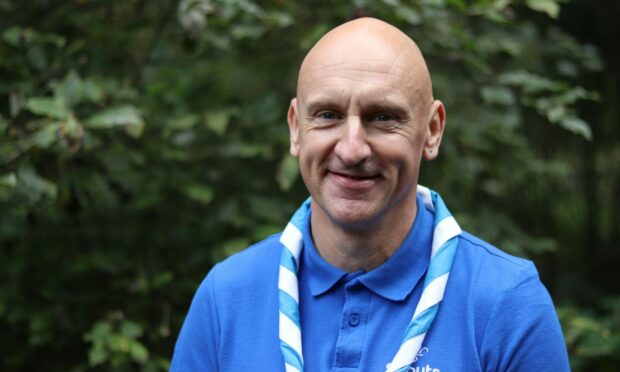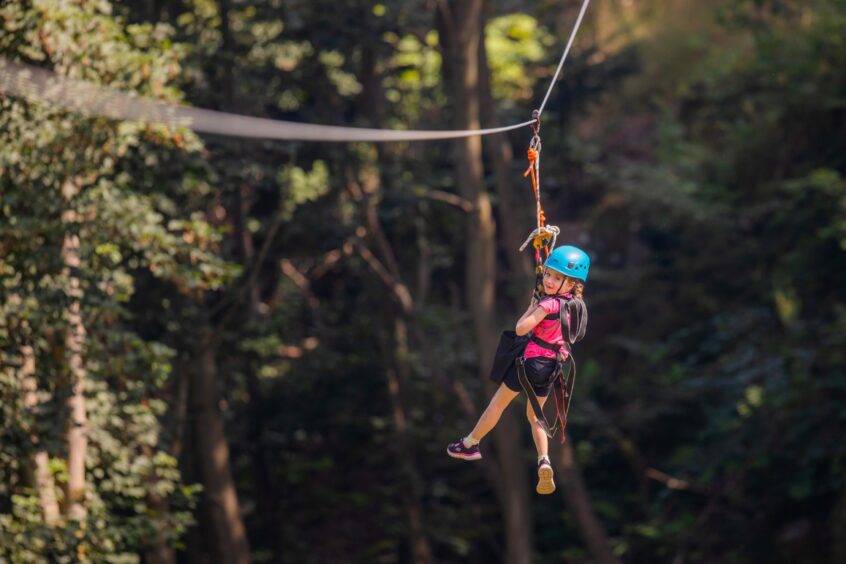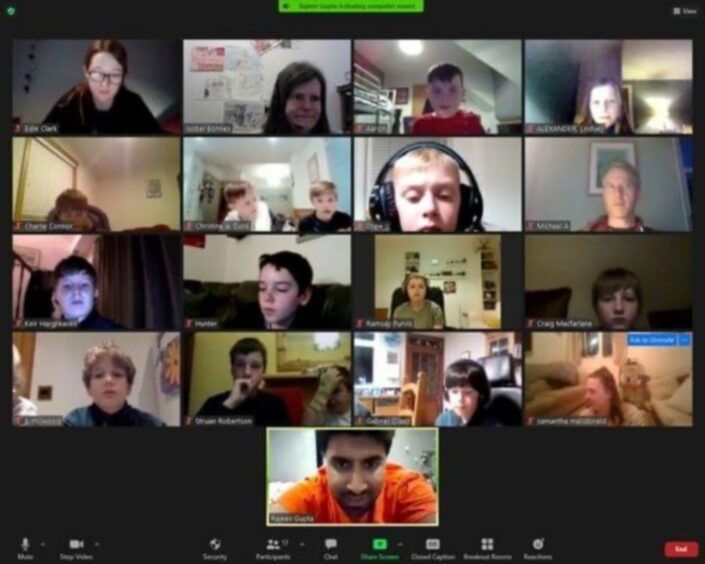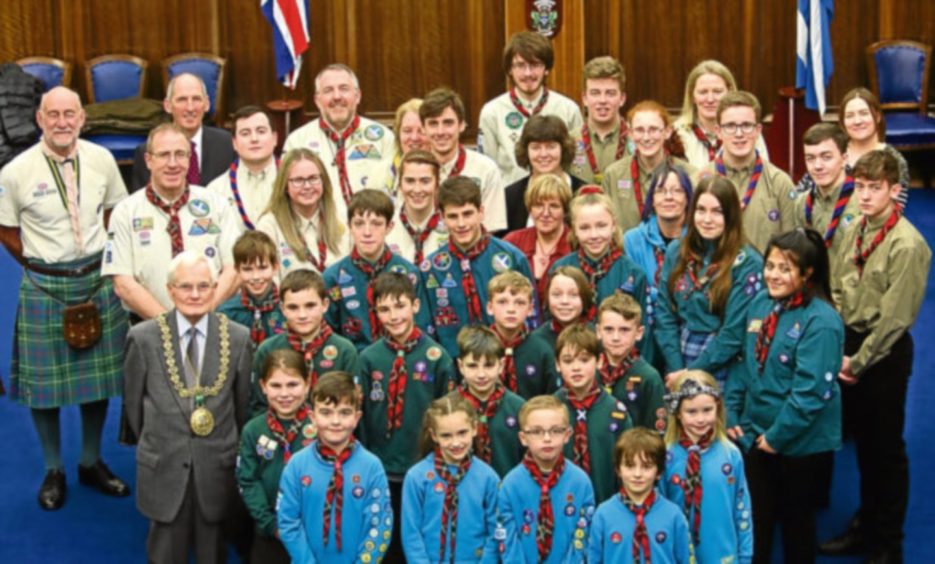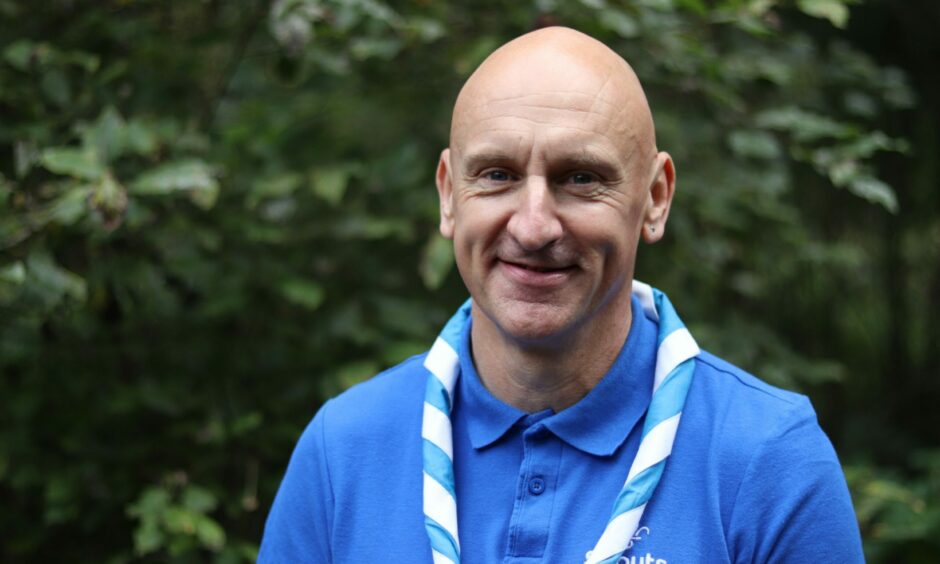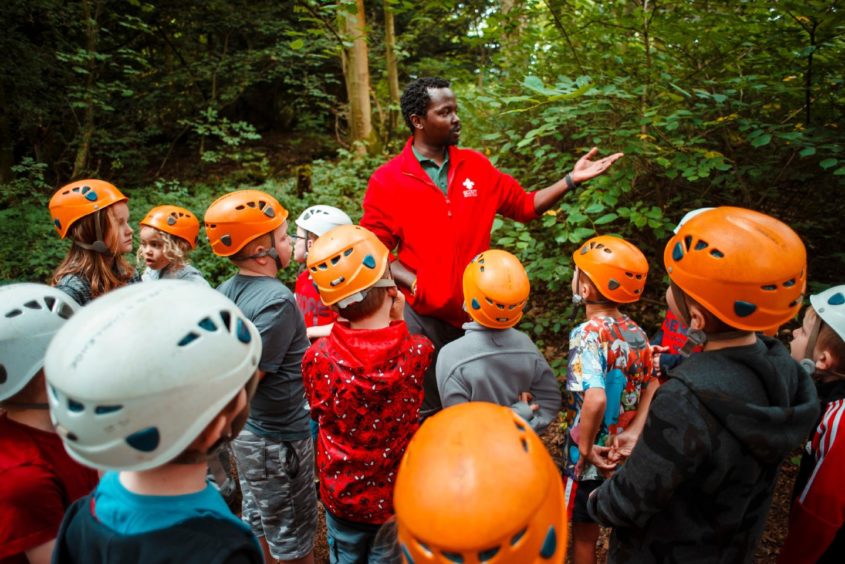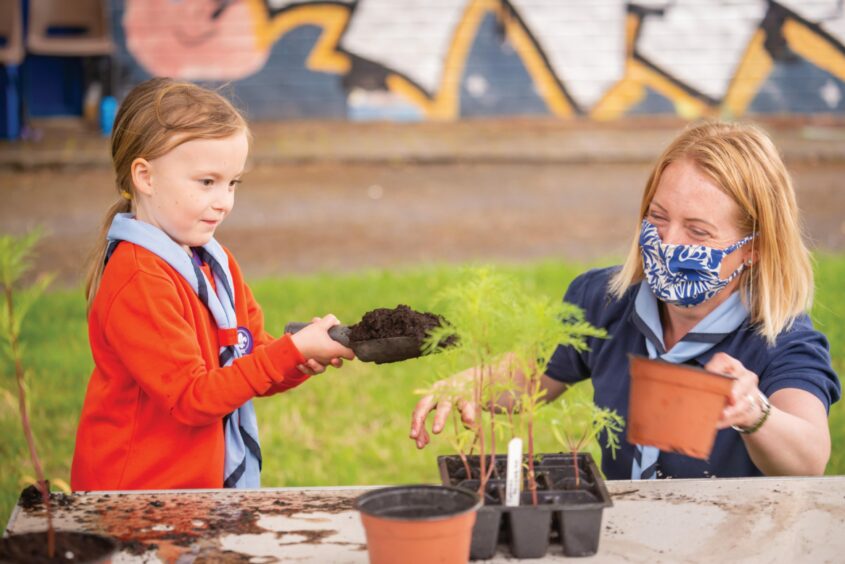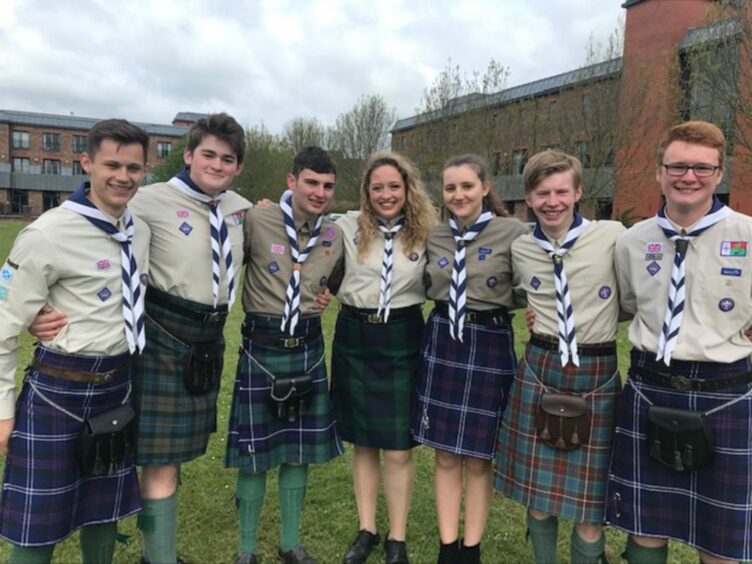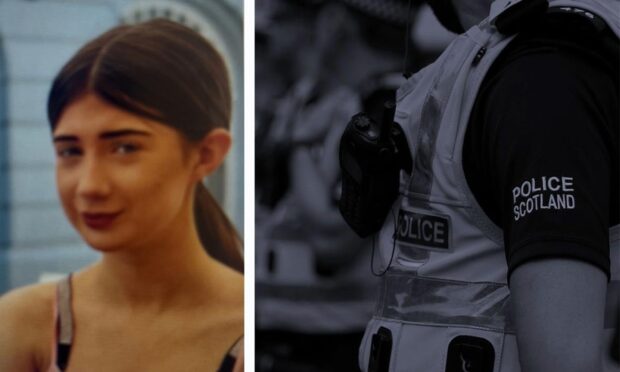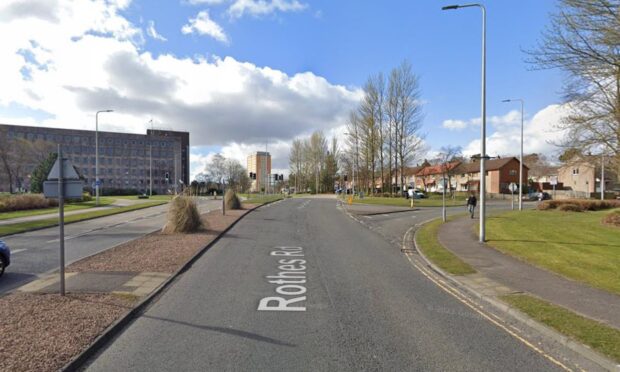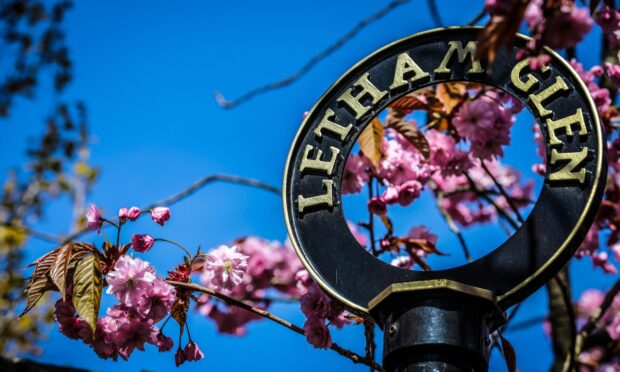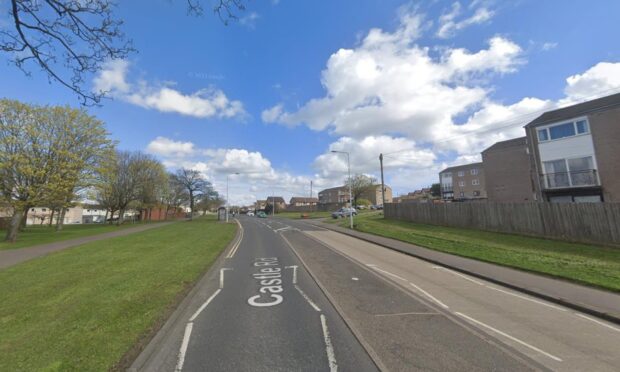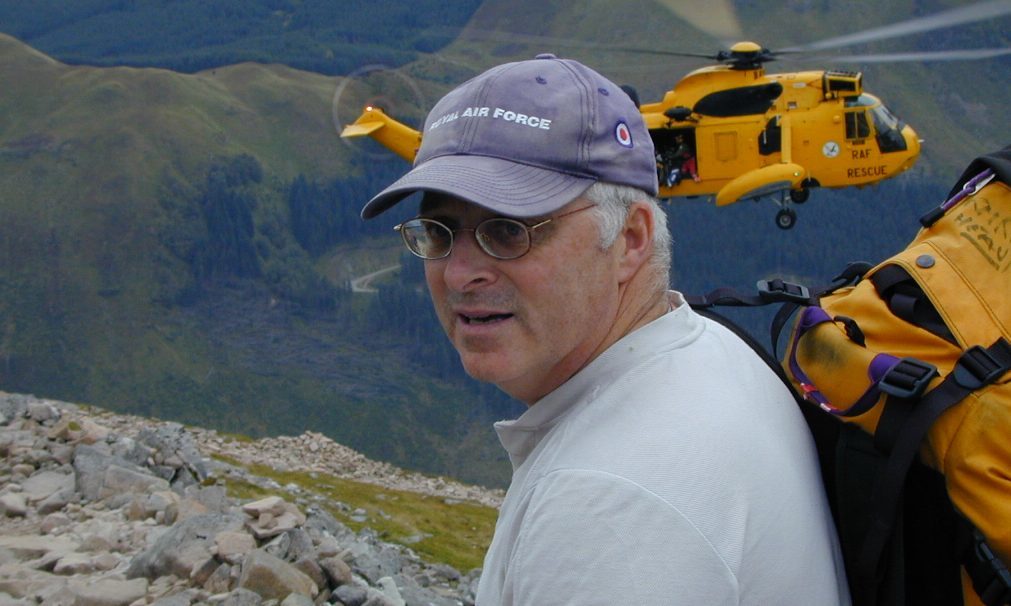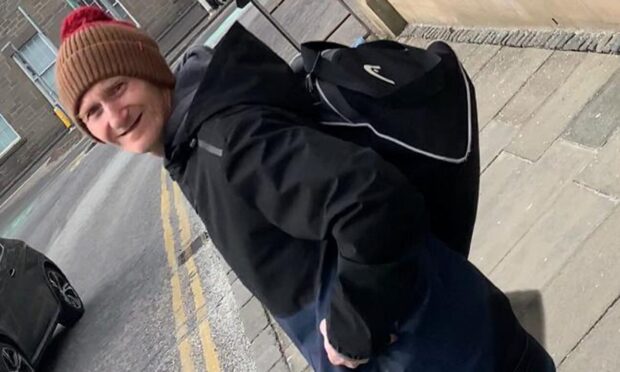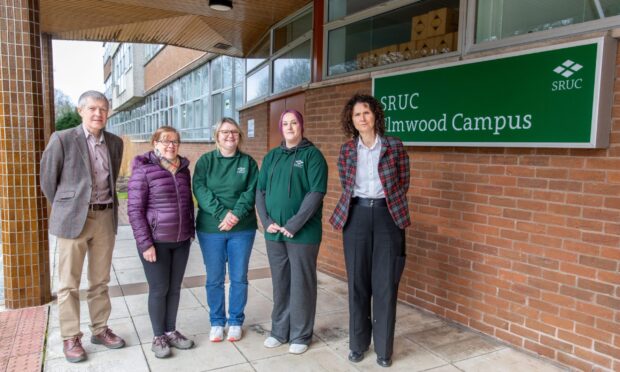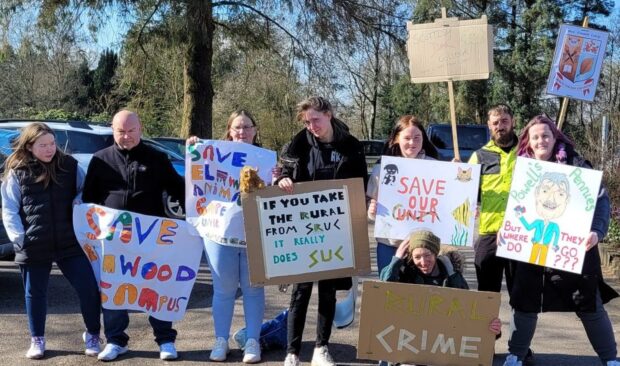Michael Alexander speaks to Graeme Luke, the new chief executive of Scouts Scotland, who is building the organisation back up again following the recent challenges faced during the Covid-19 pandemic.
It’s been a challenging couple of years for many children and young people across the country.
The Covid-19 lockdowns resulted in long spells where they were stuck at home, indoors and online.
While parents and carers supported home schooling, youth organisations such as the Scouts also moved their programmes online to facilitate continuous opportunities.
Recently appointed Scouts Scotland chief executive Graeme Luke says there’s no hiding from the fact that some young people walked away from Scouting during lockdown and some adult volunteers also decided to leave amid competing demands on their time.
Scouting is, however, bouncing back and with young peoples’ membership in Scotland up 115% since January, Graeme’s focus in his new role is to continue that recovery.
“Obviously the lockdowns were challenging,” he says.
“But we’ve not stopped offering some kind of programme right through.
“Initially those had to be online because of the restrictions that were placed upon us, but our adult volunteers just rose to the occasion. They organised creative projects that were all done online.”
Volunteers’ support
Graeme says one of the biggest single successes during this difficult period has been support from parents.
With Scouting badges re-purposed to make them achievable at home, this meant parents who had perhaps not been as familiar with the organisation in the past were suddenly more involved with the programmes created by leaders.
Younger siblings, who weren’t part of Scouting, were often motivated to take an interest after seeing what their brothers or sisters were doing at first hand.
When restrictions started to ease, Scouting slowly started offering outdoor activities again which is really where they want young people to be – outside and away from their computers and phones.
However, none of this would have been possible without the commitment of adult volunteers.
“Again our leaders stepped up to the mark running programmes in parks and open spaces when the normal meeting places just simply weren’t available,” says Graeme.
“It’s been really quite positive seeing how we’ve bounced back and it’s strengthened our resolve to say we offer a great opportunity to balance education, and those wider skills that young people really do need.”
Lifetime of Scouting
Graeme, 54, who grew up in Edinburgh, has been involved with Scouting almost his whole life, and a paid member of Scouts Scotland staff for almost 21 years.
After working as a time served butcher for seven years, then spending 12 years as distribution manager for Scotsman publications, he jumped at the opportunity to work as programme and development executive for Scouts Scotland.
Having been involved as a Scout since the age of eight, it was “quite an honour” to turn his lifelong hobby into a job.
The son of a Cub leader, he himself has been a Cub, Scout, Venture Scout (now Explorers), Young Leader and volunteer adult leader before moving into management roles – directly supporting young people, then adults, then on to training and managing of adults.
He could hardly have dreamed as a child that one day he’d have the “humbling and proud” privilege of being the organisation’s chief executive.
However, it’s his own experiences that helped him realise what an invaluable positive role Scouting can play in young peoples’ lives, out with formal education.
“I came out of school with pretty poor qualifications,” says the former Boroughmuir High School pupil.
“I was bullied at school. That effected my personal development, particularly in the early high school years.
“That just stopped me educationally doing well. But the opportunities that Scouting gave me through development of personal skills, soft skills that everyone talks about – team building, leadership, resilience – all those things really came about through my love for the organisation and the development opportunities it gave me.
“The whole thing about personal journey was totally attributed to Scouting, and that was a testament to the volunteers that gave me those opportunities.
“My own Scout leader, as a young person, was totally focussed on giving opportunities to young people, making them make decisions for themselves, and even though some of those decisions were the wrong decisions, it just set you up for learning by doing, which is one of our main methods.
“It’s about giving young people those skills that they will learn through activity. That’s very much what Scouting stands for.”
Skills for life
While proud of his own childhood journey that saw him gain confidence, self-belief and progress to his Duke of Edinburgh Award, Graeme says the beauty of Scouts is that his story is not unique.
This is the story of thousands of young people – girls and boys – from across the country.
Non-formal education and charities like Scouts Scotland help young people to develop the skills that help them to succeed in life.
Skills learned have helped Scouts become everything from teachers and social workers to astronauts and Olympians.
However, it has to be remembered, he says, that not every young person will have academic success, and that the principles that Scotland’s Curriculum for Excellence are built on can be found outside of the classroom.
Disadvantaged communities
One of the most recent developments in Scouting is the establishment of the Squirrels, aimed at four and five year-olds.
Scouts Scotland is deliberately targeting its establishment in some of the country’s most disadvantaged communities.
“That was a piece of work we started just before the pandemic,” says Graeme.
“This whole thing about getting siblings involved: back in the early 20th century, that’s how Cubs started.
“It was originally with younger siblings wanting access to some of the activities their older brothers and sisters were taking part in. Now it’s happened again with Squirrels.
“We’ve now got about 10 Squirrel dreys across Scotland since the start of October.
“Again it’s great opportunities for four, five year olds to start taking part in Scouting activities at an earlier age.
“We are particularly targeting disadvantaged communities. It has to be remembered that in this particular age group, a third of their life has been spent in lockdown. It’s really quite a stark statistic.
“We’ve now got interest from over 25 groups across Scotland who are actively planning to open up Squirrels in the next three to six months, and that will just grow.
“This is a really great opportunity to a) get into the disadvantaged communities and build back from the people that suffered hardest in the pandemic, but also to start repairing – because we did lose young people last year. We can’t hide from the fact that some young people did walk away because of the restrictions.”
Recruitment campaign
Graeme says, having lost members during the pandemic, a recent membership count confirmed they are now 115% up on where they were in January.
Instead of 29,000 members, membership now stands at just over 33,000, which is still slightly down on pre-pandemic numbers but expected to keep rising.
While there’s clearly an appetite for young people to come back and take part in Scouting activities, this is only possible through the thousands of adults volunteers who create and run programmes every week.
“We’ve got about 11,000 adult volunteers at the moment,” he says.
“That’s a bit down on the pre-pandemic levels. Some people were key workers, some people had family members who were lost, we know we had that challenge. We know we’ve still got that challenge to encourage more adults.
“But we’ve just started a campaign before the summer called Good for You.
“It’s about going out and looking for adults and sending the message that Scouting is good for you – it’s good for your mental health, it’s good for your CV, it can help you develop your skills you can then use in other parts of your life, it’s good for your community.
“Scouting gets young people into the community. But it’s also giving the volunteers a pathway to put something back into the community.”
Having taken over the chief executive reigns from Katie Docherty, Graeme says he will continue enacting the organisation’s five-year plan, which has been repurposed slightly to focus on recovery and regrowth.
Key aims include growth of membership, inclusion across society, keeping young people at the heart of decision making, and keeping involved in all communities across Scotland.
Work is also underway to get activity centres, impacted by the pandemic, back open because outdoor learning is seen as real advantage to young peoples’ mental health. “There’s a huge amount of passion in what we do,” he adds.
For more information about volunteering with Scouts Scotland go to scouts.scot/support-us/volunteer-with-us/
